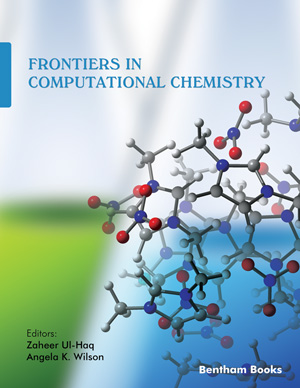Abstract
The partial efficacy and high toxicity of the current anticancer chemotherapeutics as well as the development of multiple drug resistance are the major problems in cancer therapy. Therefore, there is an emergency need for the development of novel well-tolerated anticancer agents with different mode of action that could be successfully used in combination with other drugs as an adjuvant therapy. The inhibition of intracellular signaling pathways associated with cancer growth and invasiveness is a main therapeutic approach in cancer treatment. It is well known that lipid metabolism is involved in the regulation of key cellular processes such as proliferation, differentiation and apoptosis. Statins and alkylphospholipids are both relatively new synthetic agents with considerable anticancer properties that disturb lipid metabolism and subsequently modulate proliferation and cell survival signaling pathways, leading to apoptosis. Numerous in vitro and in vivo studies have shown promising results for the use of statins and alkylphospholipids as potential therapeutic agents in the treatment of various human malignancies. However, more investigations and clinical trials are needed to assess their optimal safe dose and maximal efficacy and better understand the molecular mechanisms underlying the antitumor effects of these drugs.
Keywords: Statins, alkylphospholipids, lipid metabolism, intracellular signaling, antitumor potential.
Anti-Cancer Agents in Medicinal Chemistry
Title:Statins and Alkylphospholipids as New Anticancer Agents Targeting Lipid Metabolism
Volume: 16 Issue: 12
Author(s): Sonia N. Apostolova, Reneta A. Toshkova, Albena B. Momchilova and Rumiana D. Tzoneva
Affiliation:
Keywords: Statins, alkylphospholipids, lipid metabolism, intracellular signaling, antitumor potential.
Abstract: The partial efficacy and high toxicity of the current anticancer chemotherapeutics as well as the development of multiple drug resistance are the major problems in cancer therapy. Therefore, there is an emergency need for the development of novel well-tolerated anticancer agents with different mode of action that could be successfully used in combination with other drugs as an adjuvant therapy. The inhibition of intracellular signaling pathways associated with cancer growth and invasiveness is a main therapeutic approach in cancer treatment. It is well known that lipid metabolism is involved in the regulation of key cellular processes such as proliferation, differentiation and apoptosis. Statins and alkylphospholipids are both relatively new synthetic agents with considerable anticancer properties that disturb lipid metabolism and subsequently modulate proliferation and cell survival signaling pathways, leading to apoptosis. Numerous in vitro and in vivo studies have shown promising results for the use of statins and alkylphospholipids as potential therapeutic agents in the treatment of various human malignancies. However, more investigations and clinical trials are needed to assess their optimal safe dose and maximal efficacy and better understand the molecular mechanisms underlying the antitumor effects of these drugs.
Export Options
About this article
Cite this article as:
Apostolova N. Sonia, Toshkova A. Reneta, Momchilova B. Albena and Tzoneva D. Rumiana, Statins and Alkylphospholipids as New Anticancer Agents Targeting Lipid Metabolism, Anti-Cancer Agents in Medicinal Chemistry 2016; 16 (12) . https://dx.doi.org/10.2174/1871520616666160624093955
| DOI https://dx.doi.org/10.2174/1871520616666160624093955 |
Print ISSN 1871-5206 |
| Publisher Name Bentham Science Publisher |
Online ISSN 1875-5992 |
Call for Papers in Thematic Issues
Induction of cell death in cancer cells by modulating telomerase activity using small molecule drugs
Telomeres are distinctive but short stretches present at the corners of chromosomes and aid in stabilizing chromosomal makeup. Resynthesis of telomeres supported by the activity of reverse transcriptase ribonucleoprotein complex telomerase. There is no any telomerase activity in human somatic cells, but the stem cells and germ cells undergone telomerase ...read more
Role of natural compounds as anti anti-cancer agents
Cancer is considered the leading cause of worldwide mortality, accounting for nearly 10 million deaths in 2022. Cancer outcome can be improved through an appropriate screening and early detection and through an efficient clinical treatment. Chemotherapy remains an important approach in treatment o f several types of cancers, even though ...read more
Signaling and enzymatic modulators in cancer treatment
Cancer accounts for nearly 10 million deaths in 2022 and is considered the leading cause of worldwide mortality. Cancer outcome can be improved through an appropriate screening and early detection and through an efficient clinical treatment. Chemotherapy, radiotherapy and surgery are the most important approach for the treatment of several ...read more
 94
94 9
9 1
1 1
1
- Author Guidelines
- Graphical Abstracts
- Fabricating and Stating False Information
- Research Misconduct
- Post Publication Discussions and Corrections
- Publishing Ethics and Rectitude
- Increase Visibility of Your Article
- Archiving Policies
- Peer Review Workflow
- Order Your Article Before Print
- Promote Your Article
- Manuscript Transfer Facility
- Editorial Policies
- Allegations from Whistleblowers
Related Articles
-
Evaluation of In Vivo and In Vitro Antimicrobial Activities of a Selective Serotonin Reuptake Inhibitor Sertraline Hydrochloride
Anti-Infective Agents Preventive Effect of Soybean on Brain Aging and Amyloid-β Accumulation: Comprehensive Analysis of Brain Gene Expression
Recent Patents on Food, Nutrition & Agriculture Virus Vasculopathy and Stroke: An Under-Recognized Cause and Treatment Target
Infectious Disorders - Drug Targets Recent Advances in Small Animal Cardiac Magnetic Resonance Imaging
Current Cardiology Reviews Cardiac Protection via Metabolic Modulation: An Emerging Role for Incretin-Based Therapies?
Cardiovascular & Hematological Agents in Medicinal Chemistry Biology and Clinical Relevance of Mannose-Binding Lectin
Drug Design Reviews - Online (Discontinued) Modulation of Platelet Function and Signaling by Flavonoids
Mini-Reviews in Medicinal Chemistry Depression Related Pathophysiologies Relevant in Heart Disease: Insights into the Mechanism Based on Pharmacological Treatments
Current Cardiology Reviews Heart Rate as a Therapeutic Target in Angina Pectoris
Current Pharmaceutical Design Written Consent to Use the Drug in Children: The Problem of Off-Label Drugs
Current Pharmaceutical Design Plant Defensins and Defensin-Like Peptides - Biological Activities and Biotechnological Applications
Current Pharmaceutical Design Prognostic Role of miRNAs in Coronary Artery Disease
Current Topics in Medicinal Chemistry Molecules from Nature: Modulating the Expression of Estrogen Receptor Genes in Breast Cancer Cells
Current Bioactive Compounds The Short and Long-Term Efficacy of Pulmonary Vein Isolation as a Sole Treatment Strategy for Paroxysmal Atrial Fibrillation: A Systematic Review and Meta-Analysis
Current Cardiology Reviews New Challenges for ACE-Inhibitors in Vascular Diseases
Drug Design Reviews - Online (Discontinued) Preface [Hot Topic: Heparin and Heparinoids: Correlation between Structure and antithrombotic activity. Clinical Applications and Future Perspectives (Executive Editor: Carl P. Dietrich)]
Current Pharmaceutical Design Advances in Irrigated Tip Catheter Technology for Treatment of Cardiac Arrhythmias
Recent Patents on Cardiovascular Drug Discovery Non-Steroidal Anti-Inflammatory Drugs (NSAIDs) Induced Dyspepsia
Current Pharmaceutical Design Human Adipose-Derived Stem Cells with Great Therapeutic Potential
Current Stem Cell Research & Therapy Unusual Clinical Manifestations of the Antiphospholipid Syndrome
Current Rheumatology Reviews



























